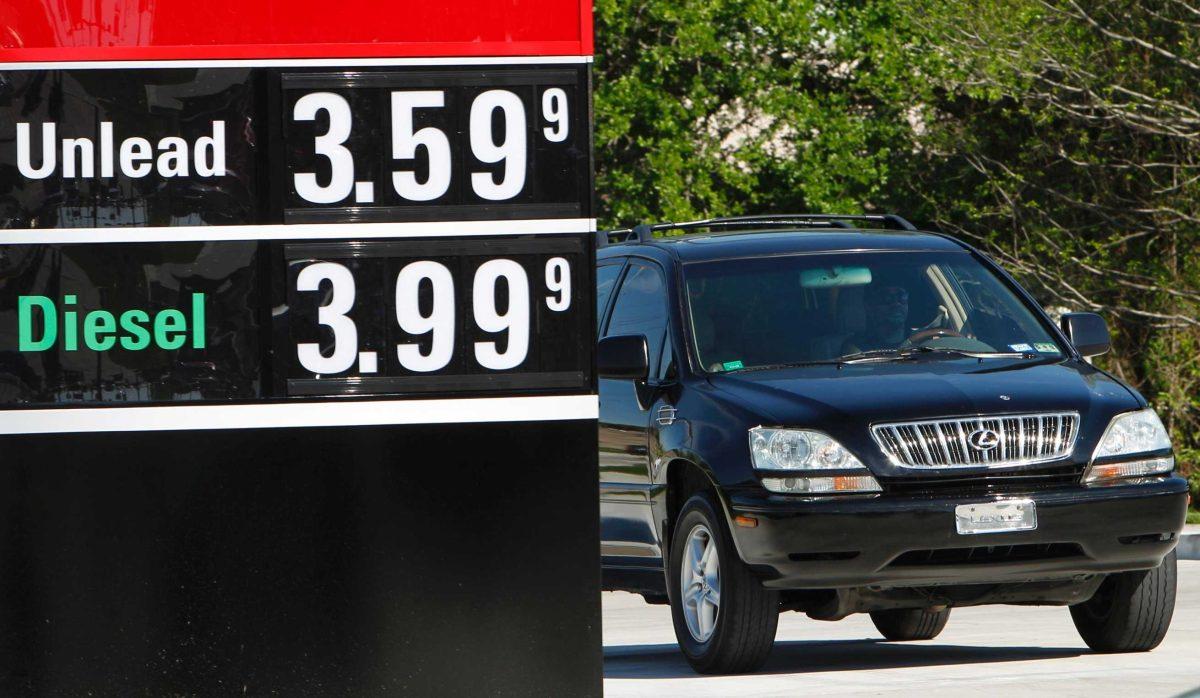Gas prices continue to steadily increase in time for summer travels. Who’s to blame for these crippling costs?
The easy answer would be our commander-in-chief, President Barack Obama, right?
Wrong.
In fact, he has very little to do with it, but many Republicans would have you think otherwise.
Unfortunately, the blame will continue to be passed around long after we cast our votes on Nov. 6 – no matter who is in office.
For now, it’s Obama who’s taking the blame for burdening our pocketbooks, with Republican presidential candidates repeatedly using quotes out of context to allege that the president and his administration actually wanted to drive up the price of gasoline.
Many conservatives would like you to believe President Obama intentionally sabotaged the American people, but it’s simply not true. First of all, the claim is ridiculous. Second, presidents in general have almost no impact on gas prices.
Former Massachusetts Gov. Mitt Romney has repeatedly twisted the words of our president. In 2008, Obama said that under his energy policy, energy prices would “skyrocket” – a sound bite that Romney has used for ammunition.
A poor choice of words, granted, but the quote was lifted from a discussion Obama was having about a cap-and-trade policy as a means to reduce greenhouse gases and the effect it would have on electricity prices – not gasoline.
Not to mention that bill died in the Senate in 2009, so it couldn’t have driven up gasoline prices.
Former House Speaker Newt Gingrich claims Obama wants gasoline prices to gradually reach European levels of $9 or $10 per gallon. The claim comes from comments Obama made in a 2008 interview when asked about then-$4-per-gallon gasoline prices and whether that could be a good thing to encourage people toward alternative energy.
Obama went on to say, “The fact that this is such a shock to American pocketbooks is not a good thing,” and he “would have preferred a gradual adjustment.”
Nothing was said in the context of wanting gasoline prices to reach European highs.
Oil prices are set in a world market and are thus affected by world affairs – war scares, emerging economies and increased demand.
Why don’t we just drill more oil here. Wouldn’t that solve the problem?
Wrong again.
Republicans have long campaigned on the belief that we must drill here and drill now to ease the burden. The truth is U.S. oil production is the highest it’s been in eight years, and fuel imports have dropped.
A statistical analysis of 36 years of monthly, inflation-adjusted gasoline prices and U.S. domestic oil production by The Associated Press shows no statistical correlation between how much oil comes out of U.S. wells and the price at the pump.
Oil prices are up because of the demand of expanding economies, such as China and India, and more recently because of war scares in the Middle East.
Democrats took a step in the right direction of long-term relief on Monday, offering legislation to cut more than $20 billion in subsidies for the oil companies that have reaped record profits from the pain Americans feel at the pump.
A poll released March 25 by Hart Research Associates revealed that many Americans believe progressive energy policies could reshape the situation, and I couldn’t agree more.
We need to stop oil companies from exporting oil from our public lands and waters to overseas markets, a policy 60 percent of those surveyed supported.
Fifty-five percent believe we need to end big oil subsidies and instead use that money to fund investments that will make us less dependent on oil – something Democrats are now attempting to do with their proposed legislation.
What we need to realize as consumers is that the days of cheap oil will not return. Our resources aren’t infinite, yet our habits would say otherwise. Oil prices will fluctuate, with consumers driving less and switching to more fuel-efficient cars, but that will be a temporary Band-Aid.
As much as it may hurt to hear, given that Louisiana’s economy is dependent on oil production, we must begin shifting our efforts to developing alternative-energy technologies, new methods of conservation and expanding public transportation if we hope to avoid a complete collapse.
Matthew Westfall is a 23-year-old mass communication senior from Winchester, Va. Follow him on Twitter @TDR_mwestfall.
—-
Contact Matthew Westfall at mwestfall@lsureveille.com.
For Thinkers Only: Blaming Obama for high gas prices easy but wrong
March 29, 2012






